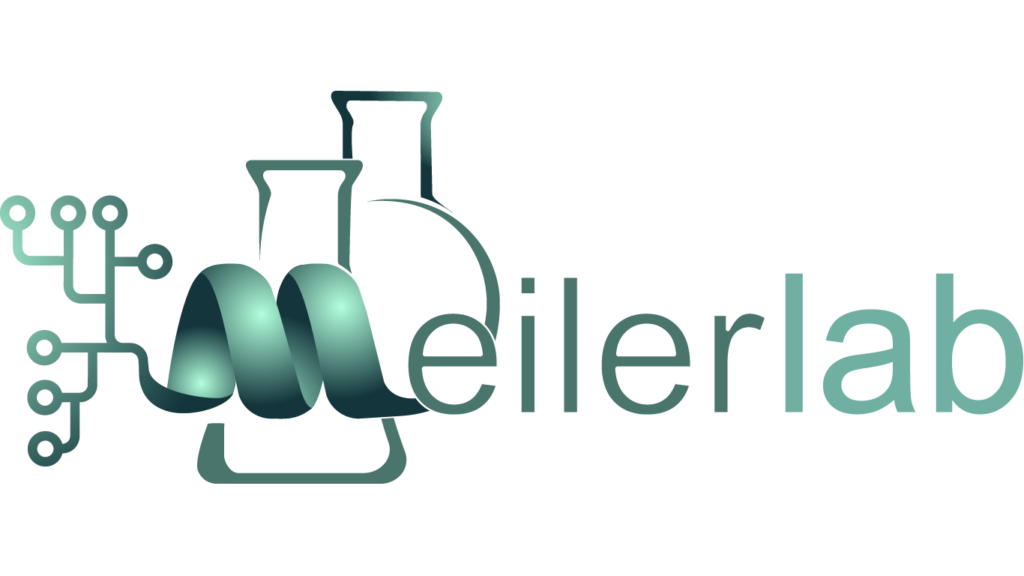Meiler lab receives funding to advance vaccine research against alphaviruses
 The Meiler lab is leading a multi-institution team that was awarded up to $46 million in funding to drive groundbreaking vaccine research from ARPA-H‘s Antigens Predicted for Broad Viral Efficacy through Computational Experimentation (APECx) program. The funding will support a consortium of 14 principal investigators (PIs) across eight institutions, enabling a collaborative effort to push the boundaries of vaccine development and create a revolutionary “super-vaccine” to protect against all alphaviruses, which include serious pathogens like Chikungunya and Eastern Equine Encephalitis.
The Meiler lab is leading a multi-institution team that was awarded up to $46 million in funding to drive groundbreaking vaccine research from ARPA-H‘s Antigens Predicted for Broad Viral Efficacy through Computational Experimentation (APECx) program. The funding will support a consortium of 14 principal investigators (PIs) across eight institutions, enabling a collaborative effort to push the boundaries of vaccine development and create a revolutionary “super-vaccine” to protect against all alphaviruses, which include serious pathogens like Chikungunya and Eastern Equine Encephalitis.
The award will fuel research aimed at developing next-generation vaccines that use cutting-edge computational techniques in epitope-focused immunogen design. By precisely targeting immune responses, these vaccines promise to generate immunogens that provide broader and longer-lasting protection against a wide range of viral strains with the goal of significantly improving global public health responses to future pandemics.
Led by Dr. Jens Meiler, lead investigator, Dr. Cristina Elisa Martina, project scientific director, and Carie Fortenberry, project administrative director, at Vanderbilt University (VU), the research project integrates state-of-the-art approaches like computational modeling, AI-driven predictions and structural biology. The focus on glycan masking—strategically hiding viral elements that help the virus evade immune detection—while exposing key epitopes, aims to trigger robust immune responses. These approaches are designed to outsmart viruses’ ability to evade the immune system, providing stronger and more durable immunity.
“Our research tackles some of the most critical challenges in modern vaccine design. This funding empowers us to take significant steps toward creating next-generation vaccines that offer reliable, long-lasting protection against diverse strains within the same viral genus,” said Martina.
The initiative brings together a multidisciplinary team of scientists, including experts in virology, structural biology, artificial intelligence and clinical research. Key collaborators include:
- James E. Crowe Jr., MD (Vanderbilt University Medical Center): Virology and immunology expert.
- C. Buddy Creech, MD, MPH (Vanderbilt University Medical Center): Clinical trials expert.
- Andrew Ward, PhD, Ian Wilson, PhD, (Scripps Research) and Kevin Schey, PhD (VU): Structural characterization experts.
- Torben Schiffner, PhD, and Darrell Irvine, PhD, (Scripps Research): Vaccine development experts.
- Gaurav D. Gaiha, MD, DPhil, (Massachusetts General Hospital) and Daniela Weiskopf, PhD, (La Jolla Institute for Immunology): T-cell immune response experts.
- Michael Diamond, MD, PhD, (University of Washington, St. Louis), William Klimstra, PhD, (University of Pittsburgh) and Mark K. Slifka, PhD, (Oregon Health & Science University): Alphavirus specialists.
- Moderna, led by Hamilton Bennett, will contribute expertise in developing mRNA vaccines for clinical use.
“With this collaborative effort and the invaluable support of ARPA-H, we are uniquely positioned to drive innovation in vaccine development and ensure our findings translate into real-world clinical solutions,” added Meiler.
The funding will significantly enhance the Meiler lab’s research capabilities by hiring new team members, acquiring advanced equipment for structural characterization and enhancing the vaccine development processes. While the project’s immediate goal is to produce a potent therapeutic vaccine against alphaviruses, the tools and methods developed could be adapted to combat other infectious diseases, boosting preparedness for future pandemics.
“This funding accelerates our ability to bring cutting-edge vaccine designs from the lab to clinical trials,” said Martina. “We are thrilled to pursue this ambitious goal and look forward to the broader impact our work can have on global health initiatives.”
About the Meiler lab
 The Meiler lab specializes in computational structural biology and AI-driven approaches to combat a wide range of diseases, including viral infections, cancer and more. The lab’s mission is to advance scientific knowledge and develop practical solutions through computational methods, structural characterization and interdisciplinary collaboration. Its work is at the forefront of innovations in vaccine design, antibody development, drug discovery and membrane protein studies. For more information about the Meiler lab and its research, visit meilerlab.org.
The Meiler lab specializes in computational structural biology and AI-driven approaches to combat a wide range of diseases, including viral infections, cancer and more. The lab’s mission is to advance scientific knowledge and develop practical solutions through computational methods, structural characterization and interdisciplinary collaboration. Its work is at the forefront of innovations in vaccine design, antibody development, drug discovery and membrane protein studies. For more information about the Meiler lab and its research, visit meilerlab.org.

Leave a Response
You must be logged in to post a comment